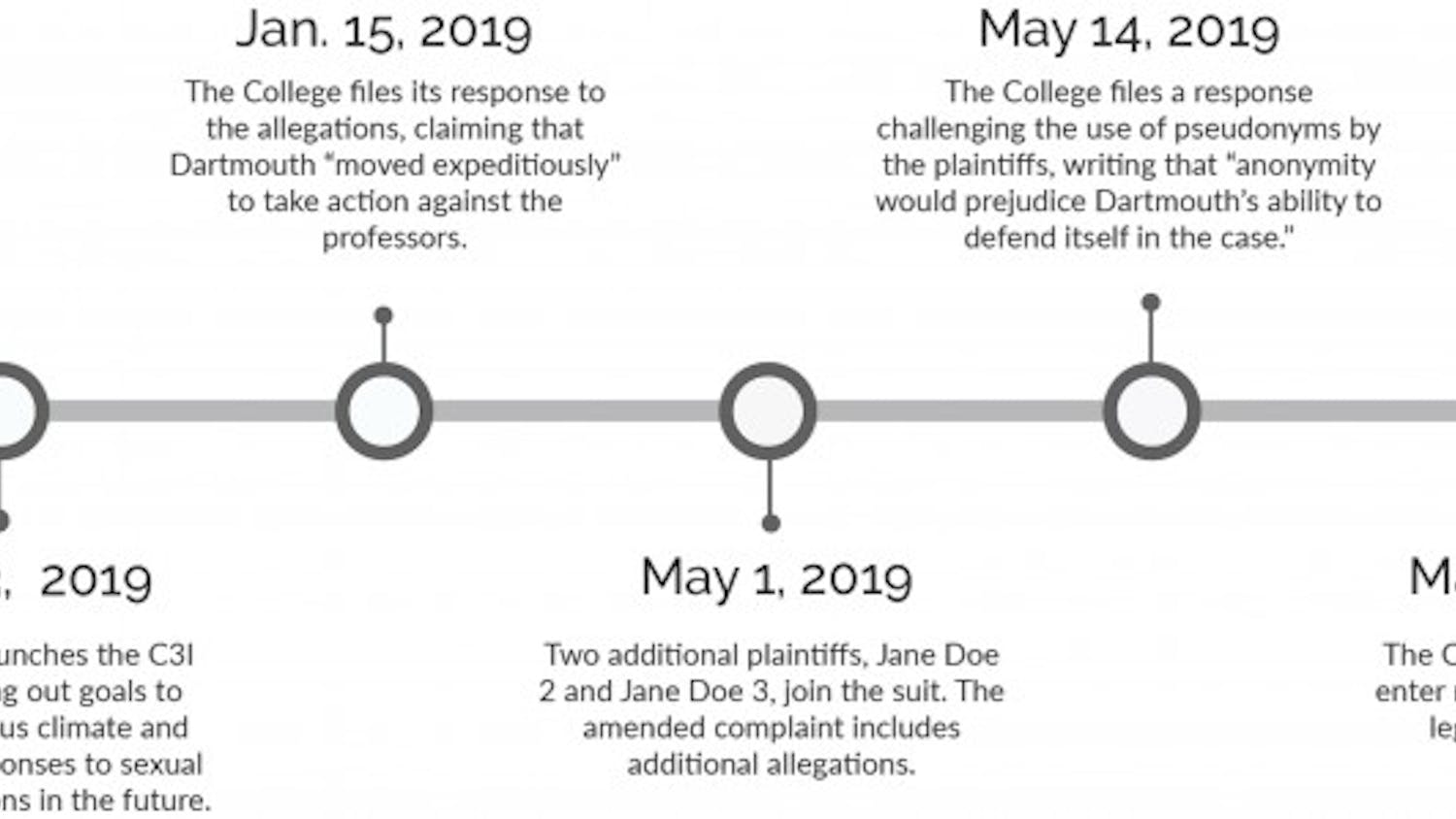Last Friday, students, staff and alumni gathered to celebrate the 100th anniversary of Dartmouth hiring its first female professor. The day-long event included speeches from past and present female College faculty as well as a Rauner Special Collections Library exhibit on the female explorer Evelyn Stefansson Nef.
Co-sponsored by the Sestercentennial Committee, the provost’s office, the Russian Department, the Leslie Center for the Humanities, and the women’s gender and sexuality studies department, the day was spent discussing the various ways in which women have contributed to and interacted with the Dartmouth community since the first female professor at the College, Elizabeth Reynolds Hapgood, was hired in 1918.
Russian and comparative literature professor John Kopper organized the event with anthropology professor Sienna Craig. The two professors said they were initially inspired to commemorate this centennial because of Hapgood’s story.
Kopper said that during the spring of 1918, while the United States was involved in World War I, Russia was a prominent focus in U.S. foreign affairs. Then-College President Ernest Hopkins realized the need to create a Russian department at the College, through which issues relevant to Russia could be studied. Hopkins searched extensively for an expert to spearhead the effort, resulting in Dartmouth eventually hiring its first Russian professor — but there was a catch. As one faculty member asserted, “... She’s a woman.”
“When we decided that it wasn’t just folklore, but true, we decided that we wanted to do something to celebrate what was going to be the centennial of a revival,” Kopper said.
The event began with a panel discussing the history of the “early years,” which also encompassed Hapgood’s work as a pioneer of female scholarship at Dartmouth. The second panel featured women who worked on Dartmouth’s faculty during the early days of coeducation, and the third panel featured speeches from faculty currently employed at the College.
Friday’s speakers were broadly representative of various departments, academic ranks and backgrounds. A common theme was present throughout the panels: the struggle for female representation at Dartmouth among students, faculty and staff alike, both in the early days of the institution and in contemporary times.
“It is difficult to be a woman on the faculty today, but it is hard to conceive how difficult it was for generation after generation who was here,” Kopper said. “The whole time that female undergraduates were struggling for recognition on campus, the faculty were, too.”
With this year marking the 250th anniversary of the College, the time was apt to both “celebrate and scrutinize” the role of women at Dartmouth, Craig said.
The final keynote speakers — two women who previously taught at Dartmouth — reflected upon their past experiences at the College. In the words of Craig, these keynote speakers would “think about, with some of that 20/20 hindsight, what can we learn about and where we want to go.”
Keynote speaker Judith Byfield ’80, a history professor at Cornell University, shared with the audience her “long and complicated relationship” with Dartmouth as an undergraduate, a faculty member and a woman of color.
“In the 1970s, as a black woman at Dartmouth, we were constantly besieged,” Byfield said. “We were ‘guests’ of the College.”
Byfield spoke to the difficulty of navigating a predominately white, male-dominated institution. Not only did Byfield say that she felt discomfort with the social atmosphere at Dartmouth, she added that she struggled to find solace in the academic realm, too.
“There were professors we had to avoid because black students never got higher than a C,” Byfield said.
However, Byfield said that as an undergraduate, she was ultimately able to find a community where she could discover her intellectual interests and feel comfortable.
“I learned how to make my marginality a generative intellectual experience,” Byfield said.
Byfield returned to the College in 1991 as an African and African American studies professor, where she said she encountered fellow scholars who provided her with camaraderie and support. Byfield added that her colleagues helped her to realize that “Dartmouth actually could provide the space for me to develop as a scholar and a mentor.”
Being a woman and a person of color, Byfield said that she encountered difficulties as a faculty member, pointing to a lack of support within her department.
“Interdisciplinary programs suffered from marginality,” Byfield said.
Byfield noted that she had to work tirelessly to make her students, who often came to her for support, feel welcome. Byfield added, however, that upon becoming a professor at Cornell University, she witnessed that issues of inclusivity weren’t unique to the College.
Keynote speaker and University of Michigan history professor Mary Kelley, who taught at Dartmouth for 25 years, spoke to the hardship of being a woman at Dartmouth. Kelley discussed her relationship to an institution that was dominated by men, citing an alma mater that touted “men of Dartmouth” to male-dominated classroom environments.
Kelley acknowledged Dartmouth’s progress, but also noted the remaining challenges faced by the College.
“Women still have to work twice as hard to be considered half as good,” Kelley said.
About a third of tenured academic positions at the College are held by women, a percentage Kelley described as a “worrisome proportion.” Dartmouth additionally lacks any building on campus dedicated solely to a woman, and Kelley expressed her wish that Dartmouth Hall would be renamed after a woman in the future.



